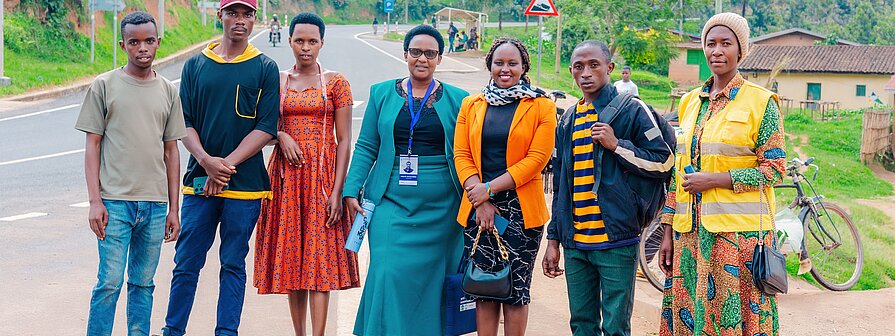Develop and Deliver Business Development Support Services to Youth and Women Start-Ups in Rusizi district in Rwanda
Empowering Youth and Women Start-Ups for sustainable growth and decent employment
Development of strong and sustainable enterprises are engines of economic growth and are key to addressing the challenge of creating new jobs, reducing unemployment, generating income while at the same time reducing poverty and decent work deficits. Creating decent jobs especially for the youth and women aligns with Rwanda’s vision of becoming an upper middle-income country by the year 2035 and reaching high-income status by 2050, and aligns with the Belgian Development Cooperation agenda to promote inclusive, fair, and sustainable economic growth, local entrepreneurship and a social economy, as well as International Labor Organization (ILO)'s Decent Work Agenda.
In July 2023, German Sparkassenstiftung Eastern Africa (DSIK) and its local partner Rwanda Institute of Cooperatives, Entrepreneurship and Microfinance (RICEM) were awarded by Enabel, the Belgian Agency for International Cooperation, a project to support youth and women Start-Ups in Rusizi district, funded by the Kingdom of Belgium.
This project aimed to improve the living conditions and resilience of vulnerable population groups in Rusizi district by investing in social protection systems and decent work and contributing to the promotion of their sustainable and inclusive socio-economic development. The creation of decent jobs must go hand in hand with social protection mechanisms and guided the project's implementation.
To achieve the overall objective, the project interventions aimed to create outcomes in three pillars: Firstly, the start-ups of 500 participating youth and women were expected to grow and decent employment, especially for other youth and women in selected economic sectors, was to be created. Secondly, the employment created was to follow decent work principles with employment contracts, fair and frequent salary payments, and working conditions in accordance with the Rwandan labour law. Lastly, the social protection component of work was to be implemented through enrolment of workers in the participating youth and women social protection schemes.
These outcomes were reached through a needs-based package of Business Development Services (BDS) which provided training, coaching and mentoring to the target group, focusing on the most relevant topics around general entrepreneurship, business management, access to finance and access to market. All interventions matched the current business status of the target group so that the gained knowledge and skills could be directly applied and impact further business growth. We worked closely with the Ministry of Public Service and Labor (MIFOTRA) from the Rwandan government side to ensure the successful implementation of the project.


